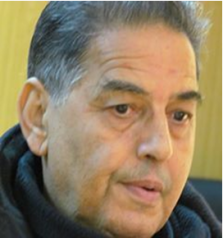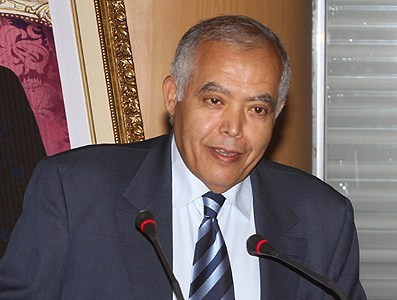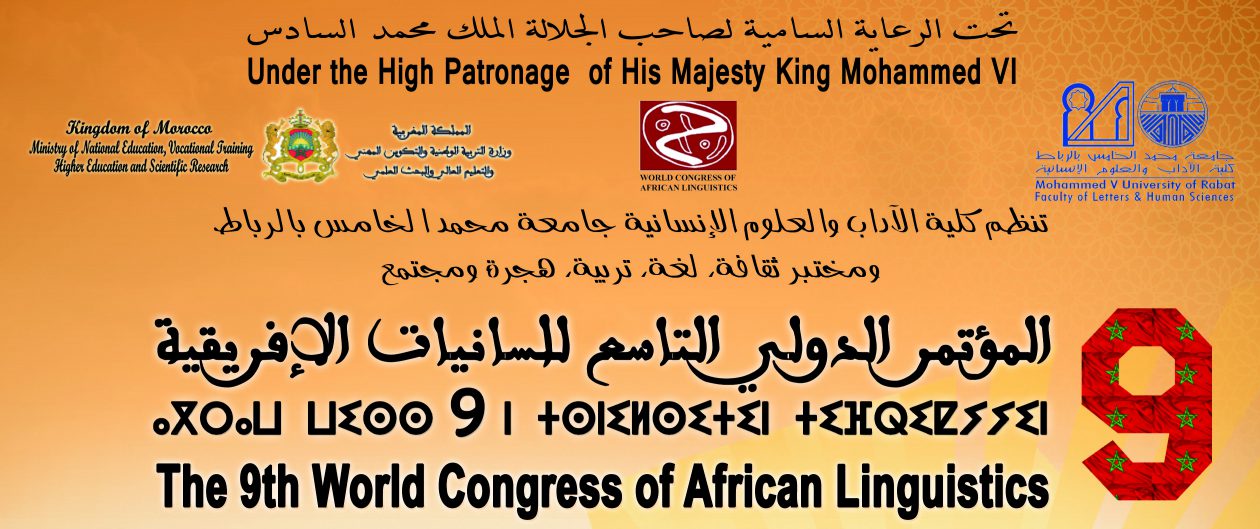
Dr. Arienne M. Dwyer is a Professor of Linguistic Anthropology and Director of Research at the Institute for Digital Research in the Humanities at the University of Kansas. She has collaborated for 25 years with a half-dozen linguistic communities in Chinese Inner Asia to document linguistic and cultural practices, and was PI of VW-DOBES and US-NSF community-led projects in Tibet, which created local and repurposable language resources. She was part of the UNESCO ad hoc Expert Committee on Language Endangerment (2003-05), and was PI and Director of the 2012 CoLang summer school in Language Research. As a digital humanist, she’s created a free and open-source Uyghur language textbooks, uses XML technologies, and teaches documentary and discourse linguistics, as well as data management techniques.
Creating diachronic language corpora, she also is currently working collaboratively on a diachronic history of the Uyghur language and ethnomedicine, from 19th century manuscripts to present.
Nationalism, glocal actors, and technology: a boost or a threat to endangered language maintenance?
We’re familiar with the practicalities of how threatened languages can be maintained, which include active multigenerational involvement, language documentation, pedagogy, and government support. But local and global factors beyond this “basic language work” often determine whether or not these maintenance efforts are successful. For example, local ideologies of modernity or ethnic authenticity may determine whether an orthography is used or not, whether in Morocco or Siberia.
This talk examines the sociopolitical context within which language maintenance work occurs; it is a critical evaluation of documentary linguistics and language technologies. I make three points in the talk: first, language work is best understood in a social matrix of actors; second, that nationalisms can be both a boon and a threat to language maintenance; and third, when coupled with awareness of the previous two points, that glocal technology will support critically threatened languages well.
Regarding nationalisms: our current era is marked by the twin pull of globalization and nationalisms (both state- and ethno-nationalism). At first glance, globalization would seem to favor monster dominant languages like English, and nationalism seems to foster local languages — but I will argue that sometimes the reverse can be true, and discuss soft-power initiatives of post-colonial powers.
As for language technology, local tech skills, local expertise, and many more language archives are invaluable, I argue, and briefly examine the accusations of positivism that technological approaches have received. This evaluative talk thus identifies a number of paths forward after identifying the possibilities and pitfalls of the current technical and ideological context.
**********************************

Dr. Mustapha Ahmed Ali is currently an external expert and educational consultant collaborating with ISESCO. He is a graduate of the University of Khartoum in Sudan and the Sorbonne University in France. He has carried out research in Social Studies, Arabic Linguistics and culture. He has been an instructor of Arabic as a foreign language, a lecturer in modern Arabic poetry, linguistics and Arabic grammar, a supervisor of scientific theses of a number of students of the departments of studies at the Universities of N’Djamena and King Faisal, Republic of Chad. He was formerly commissioned with the supervision of the Culture and Communication Directorate, and then he headed ISESCO Educational Centre in Chad before working as an expert at ISESCO Regional Office in Sharjah. He has been also a member and participant in many scientific committees in Africa. He has published many works in Linguistics, culture and education. He was knighted in the National Order of Merit, awarded by His Excellency President Idriss Deby, President of the Republic of Chad in 2003.
The Arabic Script and African languages
The study deals with the relationship between African languages in Arabic letters and the development of some of these languages thanks to the growth of political, administrative and cultural institutions and the growing need of the general public for teaching and learning. The study covers in detail the most important African languages in Western Sudan towards Wolof, Pelepid, Mandenko and Hausa, as well as the Swahili language in Eastern Africa. The study also traces the technical development of the new alphabets derived from the Arabic alphabets by creating new symbols that correspond to the voices of each language to reach the ISESCO alphabets, which included forty-three (43) letters, to some twenty-two (22) African languages, and to the Arab African machine industry. The study investigates the various stages of the project following the computerization of the Arabic-African ISESCO alphabet in the formation of curricula for adult education and literacy, translation, printing and publication of cultural heritage in African languages written in Arabic script. Al-Waseet and Al-‘Ali in the computerization of Arabic crafts and the composition of subjects in the framework of these university chairs.
**********************************

Abdallah Saaf is Professor of Political Science at Mohammed V University in Rabat, Morocco. He is the director of the Centre for Social Science Studies and Research and the founding president of the Moroccan Association for Political Science. Saaf is also the director of Abhath (the Moroccan Journal of Social Sciences) and the coordinator of Morocco Strategic Report. He is the prolific author of various specialized reports, studies, articles and books.
He was notably the Minister of National Education in the Alternance Government (1998-2004) and member of the commission in charge of drafting the Constitution of 2011.
Public Action, Multiculturalism and Multilingualism in Morocco
Studies in Moroccan political life show the great density of interactions between politics, on the one hand, and economic, social, religious, demographic, cultural and linguistic factors, on the other. Morocco’s current institutional, constitutional and legal systems seem largely open to questions of language and culture. The cultural and linguistic claim in the Moroccan context today is little seen as the claim of a part of the population which considers itself marginalised by an established order, a dominant culture, or as a subversive movement posing serious risks and threats to national unity. The cause is no longer defined as a plot-based, fractional or separatist conspiracy, but more and more as a decisive guarantee of a process of national integration introducing unprecedented questions and issues. It is no longer a question of an exotic, folklorist, particularist component of society, but rather a national dynamic, which is creative and recognized as such. At the same time, new inter-linguistic relations are being woven between standard Arabic, Tamazight, Darija, regional dialects and other languages in circulation in the country such as French, Spanish, English, Dutch, Italian, and German. This situation has created new mélanges and stakes that will make sociolinguists happy.
This paper aims to answer the following key questions: What were the defining features of Morocco’s political management of multiculturalism and multilingualism? What is the long story behind the management of the tensions of a society that seems to have decided to evolve towards a more consensual and equitable regulation of the cultural and linguistic question? What political measures can still be implemented to counter and neutralize the effects of resilient institutional or personal, conscious or unconscious discrimination about this question? Does this necessarily mean trying to maintain and equally value different languages, cultures or even different communities living in the same society?
**********************************

Matthias Brenzinger is the Director of CALDi – Centre for African Language Diversity, in the Linguistics section at the University of Cape Town (UCT) since 2012. Prior to that, he was a member of the Institute of African Studies (Institut fuer Afrikanistik) at the University of Cologne, Germany, for 28 years.
Since 1984, he has promoted the study of ethnolinguistic minorities and language endangerment globally. From 2001 to 2003, he served as chairperson (together with Akira Yamamoto) of the UNESCO Ad-hoc Expert Group on Endangered Languages. Between 1996 and 2009, he was coordinator for Africa at the International Clearing House on Endangered Languages, Tokyo. He has been the regional director for the African continent in the Endangered Languages Catalogue project (ELCat) for the last 9 years. Since 1995, he has been acting as the coordinator for the African continent in the UNESCO Atlas of World’s Languages in Danger. He is the founding member of the Ryukyuan Heritage Language Society, Japan.
He has published extensively on a wide range of topics on African languages, as well as on different aspects of language endangerment, mainly on African languages, but also on Hawaiian, the Ryukyuan languages in Japan, as well as Jejueo in South Korea. He has been the Secretary General of WOCAL since 2006 and received the Linguapax award in 2017.
South African Languages in Education
In 1953 UNESCO emphasized the importance of educating children in their mother tongue. A few years later, when African nations south of the Sahara gained independence, most of their new governments ignored this call and opted to retain the languages of their former colonizers as media of instruction. Since then, it has been proven time and time again that learning through the mother tongue has numerous advantages, among them direct educational benefits for the overall performance of students, also for the acquisition of additional (foreign) languages. Still, most African governments hold on to exoglossic language policies in their educational systems, and the majority of African children therefore continues to be taught in European languages that are foreign to them.
The prevailing practice of teaching in the ex-colonial languages as medium of instruction results in poor performance, high dropout rates and low literacy levels in most part of the continent, also in South Africa. The Project for the Study of Alternative Education in South Africa (PRAESA) founded by Neville Alexander addresses these challenges at an early that is pre-school age. For the basic education level, Alexander (2005) suggests mother tongue-based multi- and bilingual education and further requests the intellectualization and use of African languages in tertiary education. The arguments for the latter relate to the fostering of diversity, development, democracy, dignity and effective didactics. By teaching courses in isiXhosa, Russell Kaschula (Rhodes University) and Mantoa Motinyane (UCT) are spearheading attempts to intellectualize African languages at South African universities. In the last few years, students in the #RhodesMustFall and #FeesMustFall movements demand among other things the ‘blackening’ and ‘decolonizing of the curriculum’. African languages and their speakers play vital roles in redefining the fundamental aims and practices of higher education, but at least up to now the English hegemony in South Africa has not explicitly been addressed in these discussions.
European nation-state ideologies disregard multilingualism and language diversity, as both are seen as undermining national unity and hindering economic development. Many African states have adopted this ideology of national monolingualism; only a few African governments – among them South Africa – take into account the languages spoken in their country and pay attention to the communication practices and needs of their citizens. The South African Constitution of 1996 made substantial provisions for the use of African languages also in the educational sector. However, after more than 20 years, these policies have not been implemented. The use of African languages in South Africa’s formal education remains marginal mainly for historical and socio-political reasons. The abuse of mother tongue education as a strategy to subjugate the Black majorities by the apartheid regime has left a negative legacy on the use of African languages in schools. In addition, the pleas for mother tongue education in present South Africa often expose underlying double standards; members of the elites propagate mother tongue education in African languages, while sending their own children to English medium schools. This implies that education in African languages is envisaged as beneficiary only for the poor. In order for mother tongue education African languages to be more widely accepted, also by the speakers themselves, their languages have to be revaluated, for example by assigning them monetary value in making them precious assets in the job market.
The presentation examines the roles of African languages at the different levels of the South African formal educational system. Informal education in the form of community-based initiatives plays an increasingly important role in language transmission, as fewer and fewer ancestral languages are “naturally” transmitted in the home environment. The N/uu language, for example, with only four elderly speakers remaining, is taught in a community-based teaching effort. While formal education is generally a threat to African languages, there is hope for change in South Africa. In late January 2018, Nama classes were launched in two primary schools of the Northern Cape Province. There, children no longer acquire Nama from their parents but instead from their language teachers. The future will show whether formal language teaching will succeed in maintaining this valuable South African ancestral language.
Alexander, Neville (ed) 2005. The Intellectualisation of African Languages. Cape Town: PRAESA/UCT.
**********************************

Mohamed Elmedlaoui is a linguist (phonology). He published in Arabic, French and English about a hundred of papers on Berber and Semitic languages and cultures; among them, a dozen in phonology and metrics with François Dell (CNRS-Paris). He also published many books including two with F. Dell (Berber phonology, metrics and music).
He is a Fulbright alumnus (UMASS Univ. 1990) and had four times a Poste Rouge position as an invited researcher at the CNRS (Paris: 1986, 1991, 1995, and 1999).
He was a founding member of several learned and civilian societies, such as the Moroccan Linguistic Society and the Moroccan Fulbright Alumni Association (presently, the head of Association des Amis du Musée du Judaïsm Marocain). Before joining the Institut Universitaire de la Recherche Scientifique – Rabat (2006 on), he taught linguistics (1979-1985) and then Hebrew (1986-2001) in the Arabic and Islamic Departments at the Faculty of Letters – Oujda (Morocco), where he also served also as a Vice Dean (1995-1999) before joining the Institut Royal de la Culture Amazighe as a ‘Directeur de Recherche’ (2002-2006) in Rabat.
Email: <elmedlaoui@yahoo.fr> . Blog: https://orbinah.blog4ever.com/
African Languages and Linguistics Studies’ Impact on the Development of Linguistic Theory
Contrary to what is commonly believed up to now, general linguistics studies should be traced back to the 10th – 11th centuries, with the rise of the Maghreb-Andalusia’s school of systematic comparative linguistics (Ibn Quraysh, Ibn Barun …). In modern times, the early ethnographic studies gradually drew linguists’ attention to the rich and important empirical value African languages could contribute to the development of linguistic theory, phonetics and phonology in particular.
With the current globalization of scientific research in general, and linguistic theorizing of Universal Grammar in particular, African languages and linguistic studies contributed significantly to virtually all aspects of phonological theory in particular. In fact, African languages’ map is, by large, empirically richer and diversified than the that of the area where the modern linguistic theory sprung. “To cite [just] Greenberg’s (1963) influential classification, the roughly 2000 languages of Africa fall into four major linguistic phyla: Niger-Congo, Afro-Asiatic, Nilo-Saharan, and Khoisan” (L. Hyman: 2011).
For the domains where African languages and linguistic studies contributed largely to the development of phonological sub-theories, Larry Hyman brought to mind, “in approximate chronological order, the following: 1) distinctive feature theory; 2) auto-segmental phonology; 3) CV- and moraic phonology; 4) government phonology; 5) lexical phonology and morphology; 6) underspecification theory; 7) feature geometry; 8) prosodic morphology; 9) prosodic domain theory; 10) optimality theory”. And, Moroccan languages (Standard Arabic, Berber and Moroccan Arabic) and linguistic studies contributed significantly along the last four decades to these developments, in particular within the sub-domains of syllable theory, metrics and the interface mapping between metrical and musical structures.
**********************************

